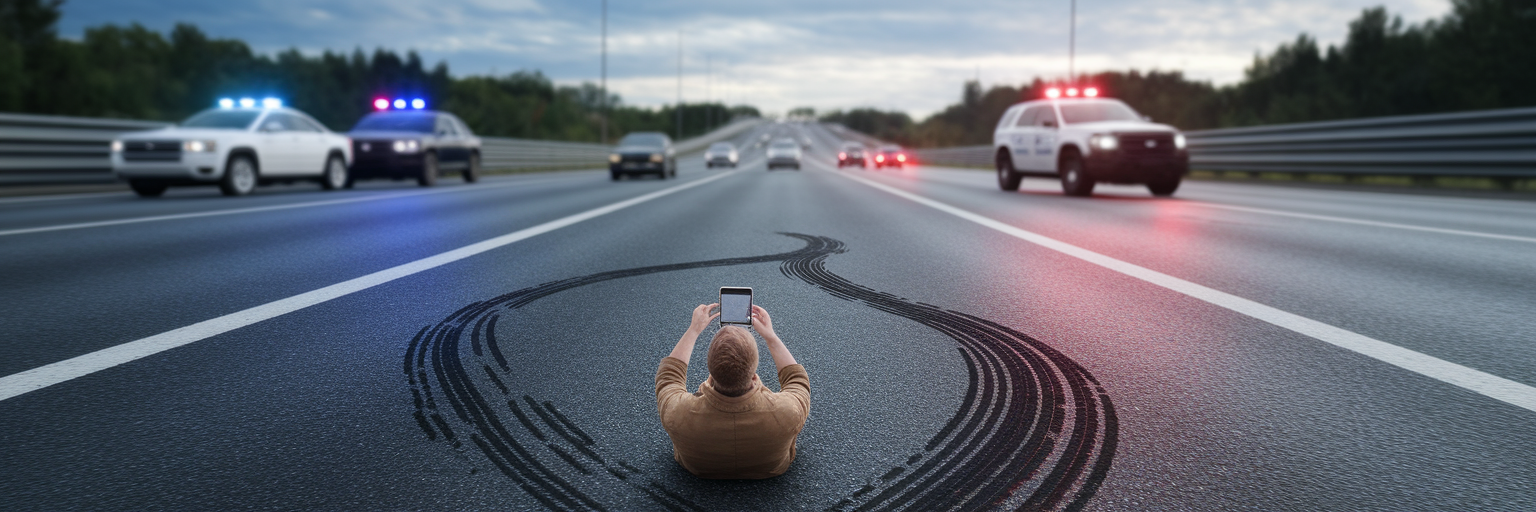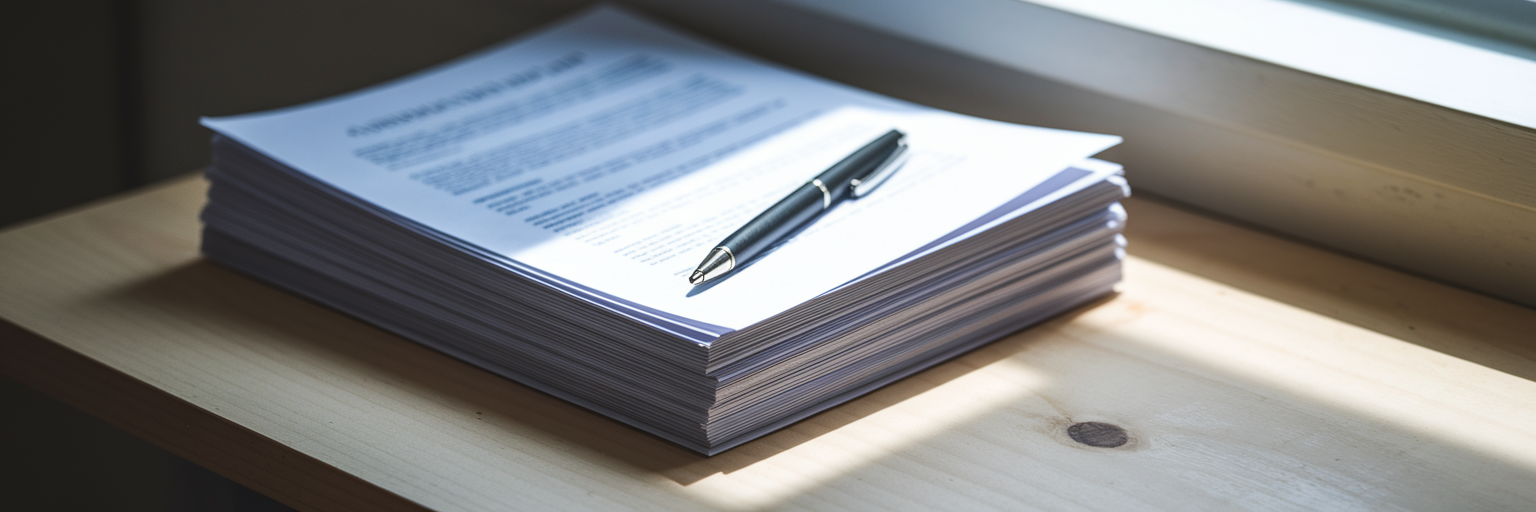The Chaos of a Pine Hills Pileup
Anyone who drives Buford Highway knows it’s more than just a road; it’s a vibrant artery of Atlanta life. But with its dense traffic and constant lane changes, especially through the Pine Hills corridor, it’s also a place where driving conditions can become challenging in an instant. One moment you are anticipating your turn, and the next you hear the unmistakable sound of metal on metal.
The immediate aftermath of a multi-vehicle crash is a blur of shock and confusion. The sudden jolt, the deployment of airbags, and the sight of several damaged cars can be completely disorienting. In that moment, feeling overwhelmed is a natural response. This guide is designed to cut through that chaos, providing a clear plan to help you regain a sense of control after a Pine Hills car pileup and protect your interests.
Your First Moves After the Crash
In the first few minutes after a collision, your actions can significantly impact your safety and any future claims. Adrenaline will be high, but focusing on a few critical steps is essential. Here is what to do after car accident involvement in the immediate moments.
- Prioritize Safety Above All Else: First, check yourself and your passengers for injuries. Before exiting your vehicle, assess the situation around you. On a busy road like Buford Highway, it is often safer to remain in your car with your hazard lights on. As reporting from WNDU on pileup safety highlights, stepping out of your car can expose you to fast-moving traffic, a significant risk unless there is a fire or other immediate danger forcing you to evacuate.
- Call 911 Immediately: This is not just for serious injuries. Calling 911 dispatches emergency medical services for anyone who needs them and brings law enforcement to the scene. Police will secure the area, manage traffic, and create an official accident report, which is a crucial piece of documentation.
- Exchange Information Carefully: Once it is safe, exchange essential information with the other drivers involved. This includes names, phone numbers, addresses, driver's license numbers, and insurance policy details. However, it is vital that you do not admit fault or apologize. Simple statements like "I'm so sorry" can be misinterpreted as an admission of guilt by insurance companies.
Preserving Critical Evidence at the Scene

While you wait for police to arrive, you have a brief window to become the primary documentarian of your own case. The evidence you gather in these moments can be fundamental to establishing what happened. If it is safe to move around, shift your focus from reacting to the crash to proactively collecting information.
- Photograph Everything: Use your smartphone to take more photos than you think you need. Capture wide shots of the entire scene to show the final resting positions of all vehicles. Get close-ups of the damage to your car and every other vehicle involved. Document skid marks, debris on the road, and any relevant traffic signs or signals that control the intersection.
- Identify Witnesses: Independent witnesses are incredibly valuable because they provide a neutral perspective. If you see bystanders who stopped after the crash, politely ask for their names and phone numbers. Their testimony can help clarify the sequence of events.
- Document Your Own Condition: Adrenaline is a powerful painkiller. You might not feel hurt right away, but injuries can surface hours or days later. Make a mental note of any ache, pain, or discomfort. If you have visible injuries, take photos of them as well. This creates a baseline record of your physical state immediately following the crash.
This checklist can help you stay organized during a stressful time.
| Evidence Type | What to Capture | Why It's Important |
|---|---|---|
| Vehicle Positions | Photos showing where all cars came to rest | Helps reconstruct the sequence of impacts. |
| Property Damage | Close-up photos of damage to all vehicles involved | Documents the severity and points of impact. |
| Skid Marks & Debris | Photos of tire marks and vehicle parts on the road | Provides clues about vehicle speeds and paths. |
| Road & Weather Conditions | Images of traffic signs, signals, and weather | Establishes the environmental context of the crash. |
| Witness Information | Names and phone numbers of bystanders | Provides neutral, third-party accounts of the event. |
| Personal Injuries | Notes on any pain or discomfort, photos of visible injuries | Creates a record of your condition immediately after the crash. |
Note: This checklist provides a general guide. Your safety is the top priority; only gather this evidence if it is safe to do so.
How Fault Is Determined in Georgia
Understanding how fault is determined is key to realizing why the evidence you just collected is so important. Georgia operates under a “modified comparative negligence” rule. Think of it like a pie chart where every driver involved in the crash is assigned a percentage of the fault. Under this law, you can only recover damages if you are found to be less than 50% responsible for the accident. If you are 50% or more at fault, you cannot collect any compensation.
In a multi-vehicle crash Georgia law becomes particularly complex. Liability is rarely assigned to just one driver. Instead, fault is often split between two or more parties. For example, the driver who caused the initial impact may bear the most responsibility, but another driver who was following too closely might also be assigned a percentage of the blame. This is precisely why an early, uninformed apology can be so damaging to your case. It gives insurance adjusters an opening to shift more of that fault percentage onto you.
The police report, your photos of the scene, and witness statements are the primary tools that insurers and legal teams use to piece together the puzzle and assign those critical percentages. Navigating Georgia's comparative negligence laws requires a deep understanding of how evidence is interpreted, a task best handled by a skilled Atlanta car accident lawyer.
Managing Insurance Claims and Police Reports

Once you leave the scene, the administrative part of the accident begins. Dealing with the paperwork and phone calls can feel like a full time job, but staying organized is crucial.
First, report the Buford Highway accident to your own insurance company as soon as possible. When you speak with them, stick to the objective facts you know. State where the crash happened, which vehicles were involved, and that a police report was filed. Do not speculate on who was at fault or offer opinions about the other drivers. Let the evidence speak for itself.
Be prepared to hear from multiple insurance adjusters. In a pileup, each driver’s insurer will launch its own investigation. It is important to remember that every adjuster’s primary goal is to minimize their own company’s financial liability. This can create conflicting narratives and significant delays as they debate who should pay for the damages.
Finally, obtain a copy of the official police report. You can typically get this from the local police department that responded to the scene a few days after the crash. This report is a foundational document for your claim, as it contains the officer’s observations, diagrams of the scene, and citations issued.
Why Legal Guidance Is Essential
A multi-car pileup on Buford Highway is not a straightforward fender bender. The complexities of apportioning fault under Georgia law, combined with the challenge of negotiating with multiple insurance companies, can quickly become overwhelming. This is where professional legal guidance becomes a necessity, not a luxury.
An experienced Atlanta car accident lawyer steps in to manage these complexities on your behalf. They handle all communications with insurance adjusters, analyze the evidence to build a strong case, and, if necessary, bring in accident reconstruction experts to prove how the crash occurred. Their goal is to ensure the fault percentages are assigned fairly so you can secure the compensation you deserve for your vehicle, medical bills, and other damages. Taking this step allows you to focus on your recovery while a professional handles the legal fight.

